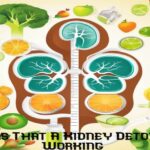Definition of Dementia
Lewy Body Dementia is a problem that develops in old age. This is not a disease but the name of a symptom that occurs when a person’s behavior changes after the brain is damaged. People with dementia are weaker mentally than physically. He also needs help from others in his day-to-day work.
Dementia itself is not a disease. This problem occurs when the brain is damaged due to Alzheimer’s disease/stress/depression/stress or some shock. Alzheimer’s disease is considered to be the leading cause of this disease.
There is a lack of public awareness of dementia. So, in this article, I will explain what dementia is. We also inform you about this disease’s symptoms, causes, types, treatments, and precautions.
What is dementia?
Dementia is a compound word of ‘de’ meaning ‘not’ and ‘mentia’ meaning ‘reason’. Most people know that dementia is a matter of forgetting the little things. However, forgetfulness or memory loss is not the only symptom.
The dementia problem is much more severe. There may be many other alarming symptoms as well. These symptoms also affect the patient’s daily life. These problems increase with age.
Many people confuse this disease with insanity. However, it is essential to know that the presence of dementia does not mean that the patient is mentally retard. Not typhoid, frenzy, or delirium. Dementia doesn’t mean insanity, either. This disease is not forgetfulness but amnesia.
Lewy Body Dementia Symptoms
Dementia can affect 1 in 10 people over the age of 65, while 1 in 4 people under the age of 85 may have the problem. However, if someone started complaining of this disease before age 65, it can be assumed that this is the onset of Alzheimer’s disease.
Here are the main symptoms of dementia:
- If you keep repeating this repeatedly, the problem is getting to the point.
- Forget social habits and do weird things.
- Use of rude language, insults, and obscene behavior
- Even after a lot of effort, I don’t remember the work.
- Your ability to think is reduced, and you constantly make bad decisions.
- Get lost in yourself
- Shouting, crying, etc., for no reason
- Uncertainty about taking the initiative
- Forget in the morning whether you ate breakfast or not.
- The problem of remembering people’s names and solving minor issues
- Wrong or flipped clothes, cleanliness issues
- Forget the day, date, month, and year.
- Forget your own home, city, and country.
- I have difficulty understanding or describing images.
- They can’t solve even the most minor math problems.
- Say or write the wrong word. I am having trouble understanding the meaning of words.
- Do not place items incorrectly, such as putting your watch in the refrigerator or locker.
- I ran a task and forgot what to do.
This disease is getting progressively worse. At its peak, the patient becomes entirely dependent on someone else. Problems with memory may also be related to hallucinations or (amnesia). Do not confuse this with Alzheimer’s or dementia. This difference can only be detected by a doctor after a proper examination.
Click Here to read more about Brain tumor Best Prevention tips
Causes of dementia
There are many parts in our brain, all of which work together in different ways. Certain diseases or injuries can damage brain cells, and this damage can also result from head trauma, stroke, brain tumor, or HIV infection.
Dementia can occur when brain cells are damaged. This damage affects the brain’s ability to communicate between cells, affecting the thoughts, behaviors, and emotions of people with this disease.
Types of dementia
The symptoms and severity of dementia depend on the type of dementia. Some types of this disease can be diagnosed, and others remain incurable. Here are the types of this disease that can be diagnosed:
1. Alzheimer’s disease:
This is the most common type of dementia—changes in the brain cause Alzheimer’s disease. Chemical reactions in the brain produce certain proteins, which increase the size of the veins and reduce the size of the patient’s brain.
2. Lewy body dementia:
This is another form of dementia caused by accumulating the protein alpha-synuclein in the cerebral cortex. Because of this disease, patients may complain of memory loss and confusion. They also have trouble sleeping, confusion, inability to balance the body, and problems going to the bathroom.
3. Parkinson’s Disease Dementia:
It is a neurodegenerative disease. This is a condition in which the nervous system is damaged. This loss can later lead to dementia. It may later take the form of Alzheimer’s disease. People with this condition may lose their ability to drive and make small decisions.
4. Mixed dementia:
In this type of dementia, patients develop many diseases simultaneously, such as Alzheimer’s disease and vascular dementia. It is also likely that many other types of this disease are associated with this problem.
5. Frontotemporal dementia:
This type of dementia has changes in the personality and conversation as well as the behavior of people with this type of dementia. He has trouble understanding and speaking his language. This disease is usually the result of another disease. These diseases mainly include Pick’s disease and progressive supranuclear palsy.
6. Vascular Dementia:
Vascular dementia is also called post-stroke or multi-infarct dementia. It occurs in about 10 percent of dementia cases. It occurs due to blockage of blood vessels, as well as due to stroke or any other type of injury to the brain.
Stages of dementia
There are seven stages of dementia, which are as follows –
Stage 1: No cognitive deficit
In stage 1, the person usually functions has no mental impairment and is mentally sound. People who do not have dementia are placed in this stage.
Stage 2: Very mild cognitive deficit
Stage 2 consists of general amnesia, which is associated with age. For example, people forget names and familiar objects. Usually, its symptoms are not obvious even to loved ones, family, or the patient’s doctor.
Stage 3: Mild cognitive deficit
This stage includes increasing amnesia, difficulty concentrating, and decreased work performance. At this stage, people often forget things and cannot choose the right words.
After reaching this stage, the patient’s loved ones and family learn about the problems associated with it when he moves to a new place. Note that researchers will include this stage in either the first stage or the first stage of the third stage (early, moderate, or severe staging systems).
Stage 4 Moderate cognitive deficits
In this condition, people with dementia have difficulty concentrating, can’t remember recent events, and have difficulty with tasks such as managing money and traveling to new places alone. Concerned people have trouble completing complex tasks because their mental abilities refuse them.
Such people start isolating themselves from friends and family because socializing becomes difficult. During the patient’s interview, the doctor can diagnose his disease by taking his speech, physical examination, and dementia test.
Stage 5: Moderately profound cognitive deficit
People in stage 5 begin to have severe memory deficits that require them to seek the help of another person to carry out their activities (for example, dressing, bathing, and cooking).
Memory loss is the main reason for this, and problems like memory loss can also arise in the future. For example, the affected person may not remember their address, phone number, even the day or time, or where they are.
Stage 6: Severe cognitive deficit (moderate dementia)
In this stage, extensive support is needed for daily activities such as dressing themselves. In such a situation, patients forget their close relatives’ names and can remember very little about the recent incidents.
Some patients remember the details of their earlier life. They also have difficulty counting counts below 10. Urinary incontinence (loss of bladder or bowel control) is also a problem in this stage.
The ability to speak correctly also decreases. Personality changes may include narcissism (perceiving something that is not true), compulsion (repeating a task over and over, such as cleaning), or anxiety and excitement.
Stage 7: Very severe cognitive deficit
People at this stage lose the ability to speak or interact. They need an assistant to carry out all normal daily activities (such as using the toilet and eating). They often lose psychomotor skills, such as walking or sitting in a chair.
Diagnosis of dementia
There is no simple test available to tell if a person has Alzheimer’s. Diagnosis of the disease requires an overall medical evaluation, which may include:
- Your family medical history
- Neurological test
- Cognitive tests to assess memory and thinking
- Doing Blood tests (to find and rule out other causes of symptoms)
- Brain imaging
- Although doctors can determine whether a person has dementia, it can be challenging to decide on what type of dementia they have. Misdiagnosis of symptoms is more common in early-stage Alzheimer’s.
- It is essential to get an accurate diagnosis early in the disease process because it can:
- Increases the chances of benefiting from available treatments, which can improve quality of life
- Opportunity to receive ancillary services
- Opportunity to participate in clinical trials, i.e., clinical trials and clinical studies
- Have the opportunity to express their wishes about future care and living arrangements
- A person can make his financial and legal plans on time
Treatment of dementia
Unfortunately, there is no cure for this disease yet, and scientists are still searching for the causes of this disease. If cells in the brain stop working and this cannot be stopped, there is no cure yet for degenerative dementia.
Management of disorders such as Alzheimer’s disease focuses on care and treatment of the symptoms rather than its underlying cause. Therefore, the symptoms of Alzheimer’s disease can be reduced by certain medicines.
Dementia is usually caused by disturbances in the cerebral cortex, a part of the brain that helps think, decide, and maintain personality. When brain cells in these areas are destroyed, cognitive impairment results, characteristic of dementia.
Injuries to the head, brain tumors, infections, hormone disorders such as thyroid disease, hypoxia (poor oxygen in the blood), metabolic disorders, and drug addiction are some of the factors that increase the risk of developing this disease.
Prevention of dementia
Here are some of the following points to prevent dementia:
- Don’t smoke and use alcohol.
- Atherosclerosis (heart disease that causes the arteries to narrow)
- High levels of “bad” cholesterol (low-density lipoprotein)
- Maintaining the above-average blood levels of homocysteine is a type of amino acid.
- Get diabetes under control.
- Some Mild cognitive impairment is raise sometimes, but not always, they lead to dementia.
A Quick Review
One common type, for instance, is Lewy body dementia, which stems from an abnormal collection of proteins in the brain. Types of dementiaThere are two different types of LBD: Neuroleptic Malignant Syndrome and sensory hallucinosis. Both types of prions cause similar symptoms: changes in cognition, movement, and sleep, as well as behavior disorders; they also affect the functioning of the nervous system.
Seek medical helpIf you or your loved one has developed symptoms of LBD, it is crucial to seek health assistance.










